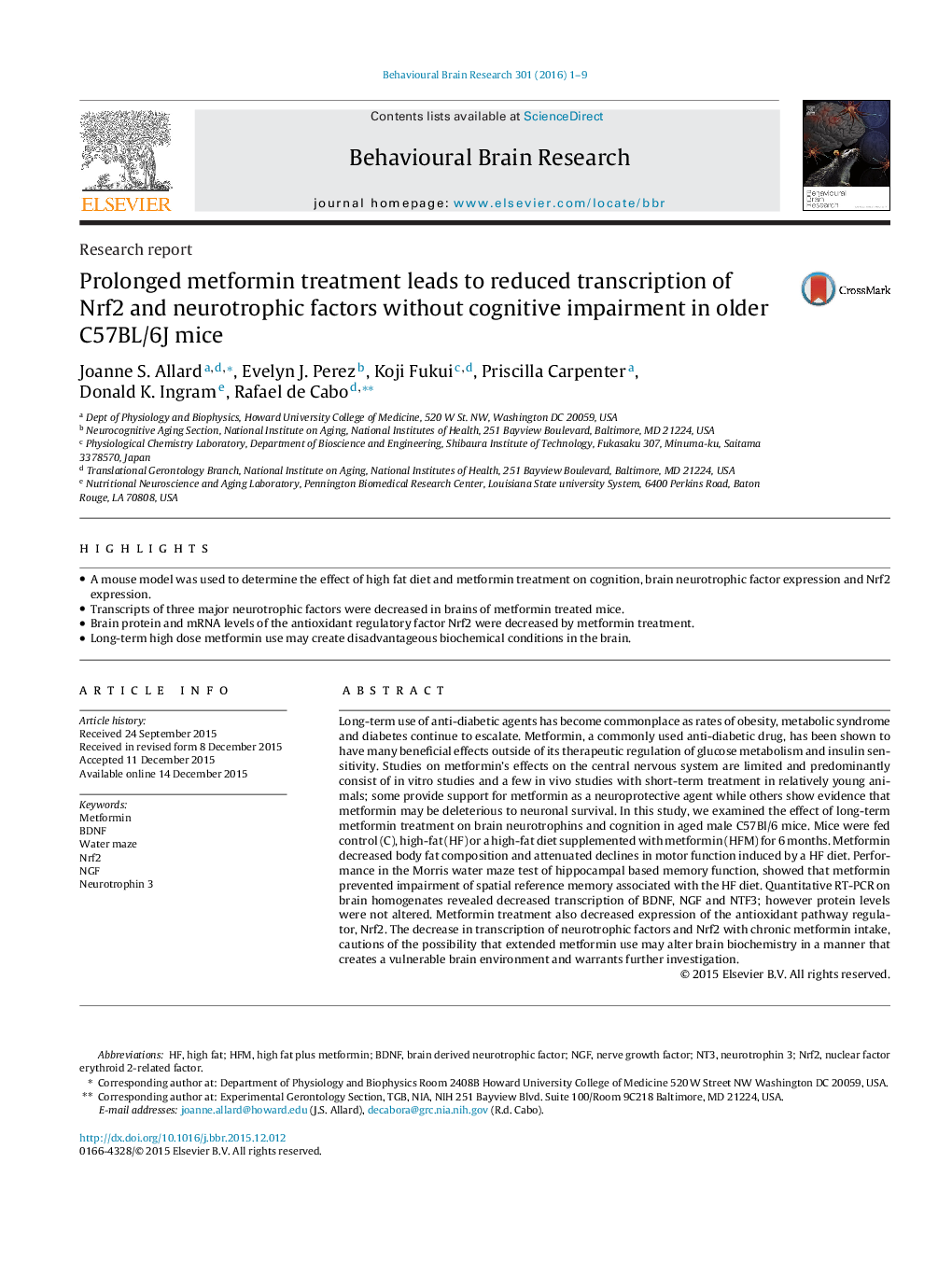| Article ID | Journal | Published Year | Pages | File Type |
|---|---|---|---|---|
| 4312280 | Behavioural Brain Research | 2016 | 9 Pages |
•A mouse model was used to determine the effect of high fat diet and metformin treatment on cognition, brain neurotrophic factor expression and Nrf2 expression.•Transcripts of three major neurotrophic factors were decreased in brains of metformin treated mice.•Brain protein and mRNA levels of the antioxidant regulatory factor Nrf2 were decreased by metformin treatment.•Long-term high dose metformin use may create disadvantageous biochemical conditions in the brain.
Long-term use of anti-diabetic agents has become commonplace as rates of obesity, metabolic syndrome and diabetes continue to escalate. Metformin, a commonly used anti-diabetic drug, has been shown to have many beneficial effects outside of its therapeutic regulation of glucose metabolism and insulin sensitivity. Studies on metformin’s effects on the central nervous system are limited and predominantly consist of in vitro studies and a few in vivo studies with short-term treatment in relatively young animals; some provide support for metformin as a neuroprotective agent while others show evidence that metformin may be deleterious to neuronal survival. In this study, we examined the effect of long-term metformin treatment on brain neurotrophins and cognition in aged male C57Bl/6 mice. Mice were fed control (C), high-fat (HF) or a high-fat diet supplemented with metformin (HFM) for 6 months. Metformin decreased body fat composition and attenuated declines in motor function induced by a HF diet. Performance in the Morris water maze test of hippocampal based memory function, showed that metformin prevented impairment of spatial reference memory associated with the HF diet. Quantitative RT-PCR on brain homogenates revealed decreased transcription of BDNF, NGF and NTF3; however protein levels were not altered. Metformin treatment also decreased expression of the antioxidant pathway regulator, Nrf2. The decrease in transcription of neurotrophic factors and Nrf2 with chronic metformin intake, cautions of the possibility that extended metformin use may alter brain biochemistry in a manner that creates a vulnerable brain environment and warrants further investigation.
